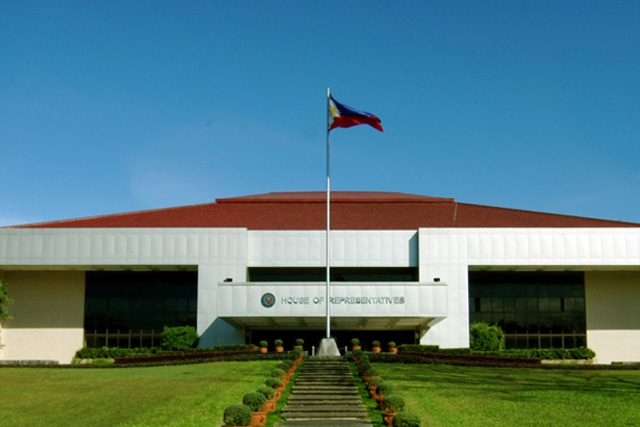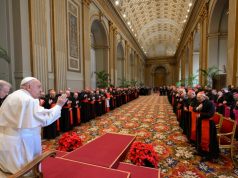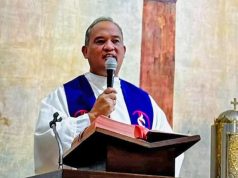MANILA, Philippines — The two chambers of Congress said there is no need for them to approve President Rodrigo Duterte’s declaration of martial law in Mindanao.
House Majority Leader Rodolfo Farinas said the agreement reached with Senate Majority Leader Vicente Sotto III was for the lawmakers to be briefed by the Executive Secretary, Secretary of Department of National Defense, Secretary of the Interior, and other concerned officials on Duterte’s report explaining why he declared martial law.
Duterte placed Mindanao under martial law late Tuesday, while he was still in Russia, after fighting broke out in Marawi City between government forces and fighters of the Maute group.
The Senate briefing is scheduled for Monday, May 29, that for the House on Wednesday, May 31.
The information divulged and discussions during the executive sessions will not be divulged to the public.
Farinas said he would propose in plenary on Monday that the House constitute itself into a Committee of the Whole — meaning all 292 members — for Wednesday’s briefing.
Other Cabinet Secretaries will also be invited, he said.
But debate continued to rage about the need for Congress to approve the martial law declaration.
Speaker Pantaleon Alvarez and Farinas said the Constitution does not require congressional approval by both chambers in joint session.
Farinas cited Section 18 of the Constitution: “The President has the power to proclaim Martial Law for a period of not more than 60 days without congressional approval, but the Congress, voting jointly, by a vote of all its Members … may revoke such proclamation or suspension, which revocation shall not be set aside by the President.”
“The Congress has to act only if it shall revoke such proclamation. If it is in favor of the proclamation, it does not have to act, but nothing prevents either or both Houses from expressing support,” he said.
He added that the need to convene only applies when Congress is not in session. However, Congress is currently in session and will adjourn on May 31.
“Congress does not have to approve the Martial Law Proclamation, but it may express support (or approval) if it so desires,” Farinas said.
“A joint session requires a Concurrent Resolution of both Houses to call Congress into such joint session. If either does not want to, how can you have a joint session?” he added.
But in a radio interview, former Commission on Election chairman Christian Monsod, an acknowledged constitutional expert, insisted that Congress is required to convene in joint session to act on the declaration.
“They are mandated to talk about it because it’s up to Congress to revoke and if the President extends the 60 days and that will need the joint vote of Congress, a joint session to vote jointly,” he said.
Reacting to Alvarez’s statement, Monsod said; “Andyan sa Constitution ‘yan, bakit hindi siya sumunod doon, bakit niya sinasabi na hindi na kailangan iyan, parang hindi niya binasa ang Constitution? Iyan ang nakakatakot (That’s in the Constitution, why doesn’t he follow that, why does he say it isn’t needed, like he did not read the Constitution? That is scary).”
Monsod said a thorough and careful deliberation of Duterte’s martial law declaration was crucial to the function of Congress in ensuring the system of checks and balances in government.
“They can either revoke it or leave it … If the President wants to extend it, then they have to meet to decide. In a democracy, that’s the systems of checks and balances,” he stressed.
In 2009, Congress convened in joint session and deliberated on Proclamation 1959, which proclaimed martial law and suspended the privilege of writ of habeas corpus in Maguindanao province in the wake of the Ampatuan massacre, which claimed the lives of 58 persons, 32 of them media workers.
Lawmakers, however, did not vote on the proclamation because it was lifted only after nine days.
At a news conference, Kabayan party-list Representative Harry Roque said the violence in Marawi City justified martial law.
“The bottom line is that the President has access to information that is only available to him as commander-in-chief,” he said. “Having said that, I stress the need for government to strictly observe the strict requirements established by the 1987 Constitution for the declaration and imposition of martial law.”
“Congress, pursuant to the same provision, has a duty to assess, at the end of that 60-day period, whether there is still a need for martial law,” he added.
Roque also stressed that, “martial law is not blanket authority for abuse of the rights of citizens.”
He highlighted the following Constitutional prescriptions found in Art. VII, Section 18:
- The Supreme Court may review, in an appropriate proceeding filed by any citizen, the sufficiency of the factual basis of the proclamation of martial law or the suspension of the privilege of the writ or the extension thereof, and must promulgate its decision thereon within thirty days from its filing.
- A state of martial law does not suspend the operation of the Constitution, nor supplant the functioning of the civil courts or legislative assemblies, nor authorize the conferment of jurisdiction on military courts and agencies over civilians where civil courts are able to function, nor automatically suspend the privilege of the writ.
- The suspension of the privilege of the writ shall apply only to persons judicially charged for rebellion or offenses inherent in or directly connected with invasion.










